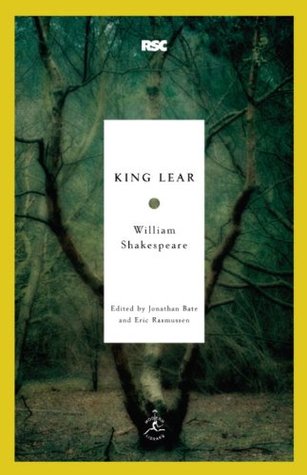More on this book
Community
Kindle Notes & Highlights
There is a theater saying that by the time you’re old enough to play it, you are too old to play it.
had rewritten King Lear with a happy ending, in which Cordelia was married off to Edgar.
extends the technique of parallel plotting with which Shakespeare had experimented in Hamlet, where Laertes and Fortinbras serve as foils to the hero. In
in all previous versions of the Lear story, several of which would have been familiar to members of his audience, Cordelia survives and Lear is restored to the throne.
In his original version of the play Albany speaks the final speech and thus rules the realm.
In his revised version of the play Edgar speaks the final speech and thus rules the realm.
Generations of editors adopted a “pick and mix” approach to the text, moving between Quarto and Folio readings,
the Quarto and the Folio. The Quarto has nearly three hundred lines that are not in the Folio;
the Folio has more than a hundred lines that are not in the Quarto;
For this reason, the RSC Shakespeare, in both Complete Works and individual volumes, uses the Folio as base text wherever possible.
Quarto includes about 300 lines that are not in the 1623 Folio text,
Shakespeare). The Folio in turn has about 100 lines that are not in the Quarto,
diminution of the prominence given to the invading French army
weakening of the role of Albany
reassignment from him to Edgar of the play’s ...
This highlight has been truncated due to consecutive passage length restrictions.
Among the more striking cuts are the mock trial of Goneril in the hovel
the moment of compassion when loyal servants apply a palliative to Gloucester’s bleeding eyes.
We have edited the more theatrical Folio text but have corrected its errors
The influence of Quarto copy on the Folio is of great assistance in making these corrections.
with a sigh like Tom o’Bedlam123.—
Have you heard of no likely wars toward10 ’twixt the dukes of Cornwall and Albany?
And meeting here the other messenger,
Whose welcome I perceived had poisoned mine —
There is division between the dukes,
A plot upon her virtuous husband’s life,
LEAR Dost thou call me fool, boy? FOOL All thy other titles thou hast given away, that thou wast born with.
Arraign her first, ’tis Goneril. I here take my oath
SECOND SERVANT Go thou: I’ll fetch some flax and whites of eggs127 To apply to his bleeding face. Now heaven help him!
KENT Why the King of France is so suddenly gone back168, know you no reason?
When Macready, who had played Edmund to Booth’s Lear, restored Shakespeare’s text in his Covent Garden production of 1838,
Ellen Terry’s Cordelia was widely praised.
John Gielgud first played Lear in Harcourt Williams’ production at the Old Vic in 1931 at the age of twenty-six.
A decade later Laurence Olivier played Lear at the Old Vic as “a whimsical old tyrant
Alec Guinness as the Fool was widely praised.
starring Paul Scofield
Adrian Noble’s 1982 production with Michael Gambon is discussed below.
Emma Thompson as the Fool;
Ian Holm playing Lear—a
Trevor Nunn’s production at the Courtyard Theatre with Ian McKellen as King Lear
Jan Kott’s influential book entitled Shakespeare Our Contemporary (1964) was of great inspiration to late-twentieth-century directors.
into a tale of dysfunctional family neurosis.
Lear’s world became both a mental ward and the interior of his mind,
Lear went on an inner and outer journey of physical suffering and mental awareness:
The geriatric ward slugs it out with the psychiatric wing.
is presented with three kinds of madness: real in Lear himself, assumed in Tom/Edgar, and professional in the Fool.
When he is “sane,” he represents the cruel world, arbitrary and aggressive,
only when he is “mad” does he embody human values.36
Antony Sher played the Fool as “Lear’s alter-ego, the visible mark of his insanity.
schizophrenic trying to pull himself together, Antony Sher’s red-nosed clown and Michael Gambon’s violent old man are two warring parts of one psyche.”
This is your genuine professional fool. Inside whom is a man in a panic, the Cassandra of the play, whose raving prophesies terrify the prophet himself.40


